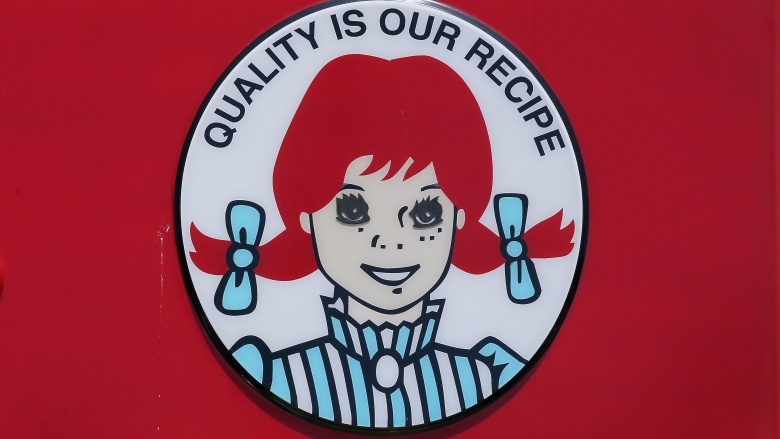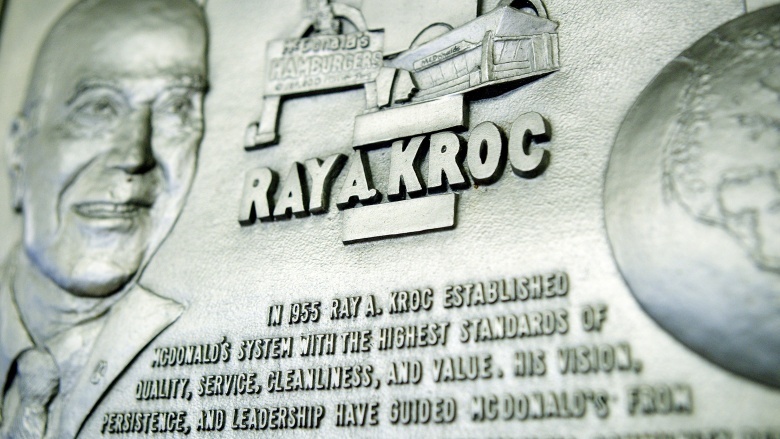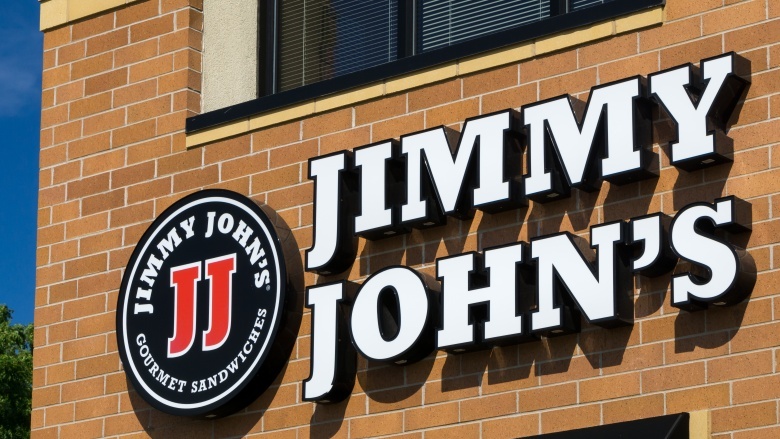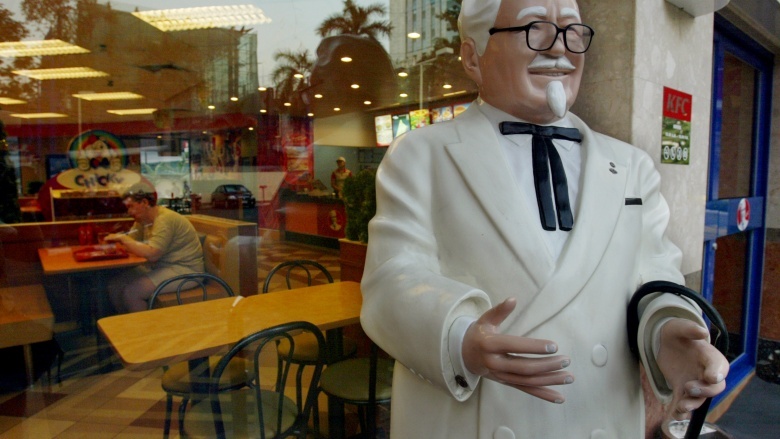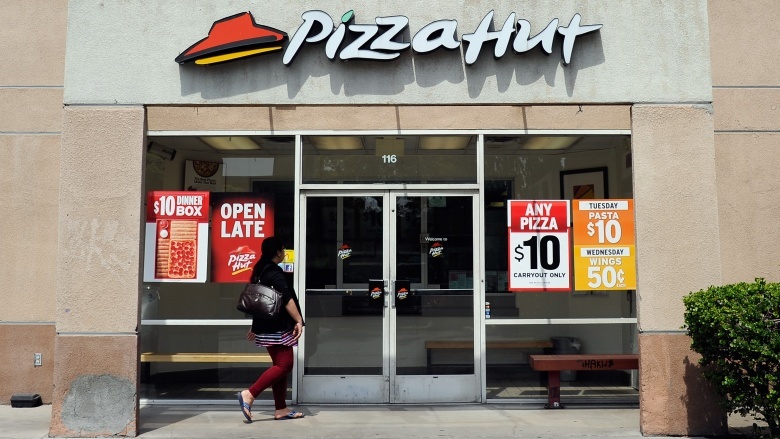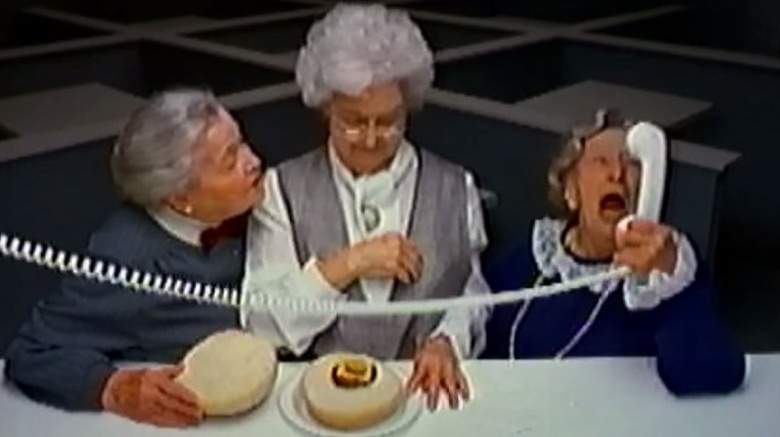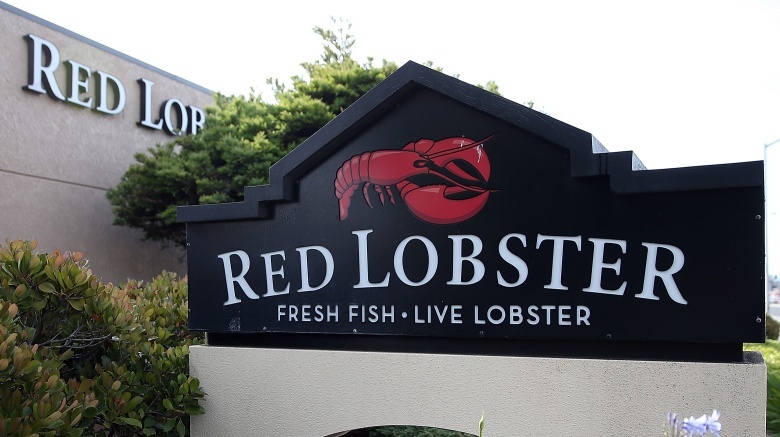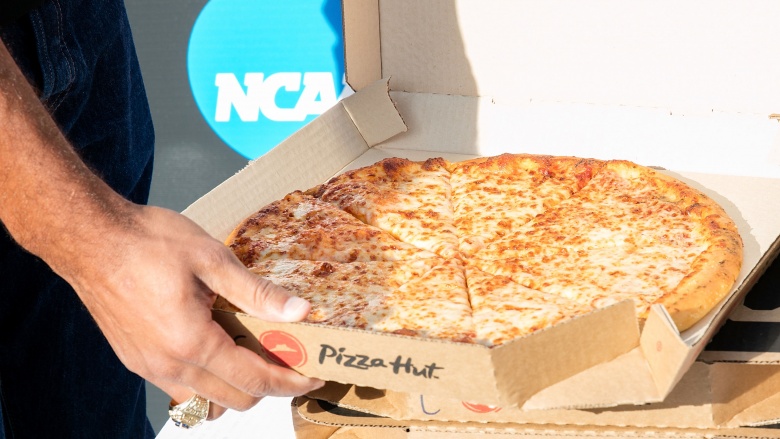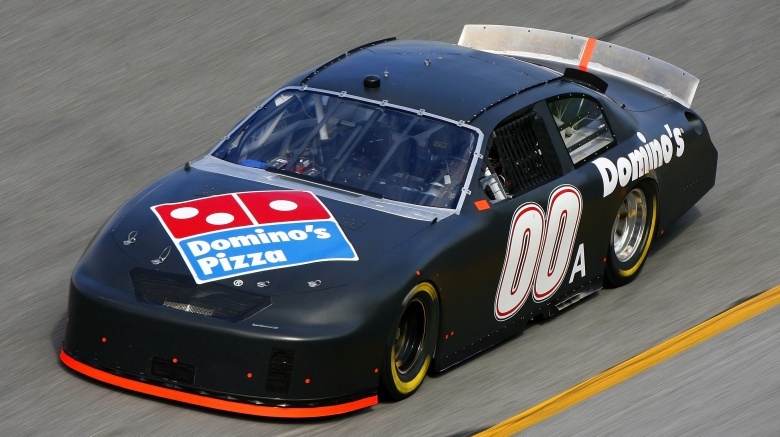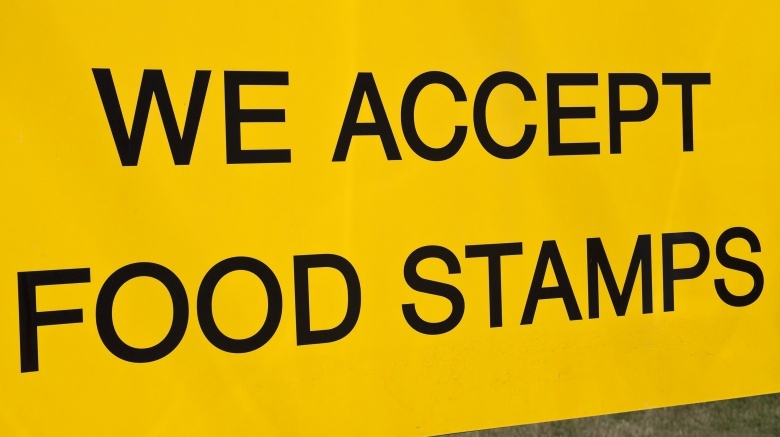Disturbing Fast Food Restaurant Secrets
Fast food is disgusting, and is made out of 10 percent foodstuffs, 90 percent fillings found on the floor. Even hardcore Big Mac fans know that. But you know what's really disturbing about fast food places? Everything else they do. Some of their corporate practices are shadier than a thousand Eminems, and if pink slime and e-coli aren't enough to convince you to grill your own damn burgers from now on, nothing will.
The McDonald Brothers were put out of business...by a McDonald's
The story of McDonald's founder Ray Kroc is basically that of a petulant bully who wins. According to a Daily Mail interview with the McDonald family, after Kroc convinced the McDonald brothers to let him franchise their restaurant, he immediately began plotting their demise. He hated how he couldn't change things at his McDonald's without a thumbs-up from the brothers (who were, technically, his bosses). So he offered to buy the company outright. When the brothers asked for $2.7 million, plus 0.5 percent of future company royalties, Kroc apparently snapped, throwing a baby tantrum in his office and cursing the McDonald family for being so greedy as to ask for money. How dare they?
Kroc eventually paid, but then immediately cut the brothers out of their royalty deal, which would've earned them hundreds of millions of dollars. In addition, Kroc hated that the brothers still ran their old restaurant under a new name (Big M). So, he opened up another McDonalds nearby — within a few years, Big M was no more. Ray Kroc had achieved his dream of owning a hugely successful company, plus another dream of guaranteeing his old partners would never work again. Fitting punishment for the crime of annoying him once.
Jimmy John's makes regular employees sign non-compete contracts
If you leave a fast food job and aren't, say, the CEO, you can easily get another low-paying job elsewhere. Unless, sadly, you work at Jimmy John's, the popular sandwich shop best known for never having one of its mascots wind up in prison. As revealed by the Huffington Post, when JJ's hires you to slap turkey on rye for eight bucks an hour, they force you to sign a non-compete contract that bars you from working for any competitors for two years after you leave. By competitors, they mean any company that makes more than ten percent of their money off of sandwiches, and is less than three miles away from any Jimmy John's, anywhere. Since sandwiches aren't exactly an exotic dish enjoyed only by the hippest of the hipsters, and since there are about 2,500 JJs worldwide, with more coming every year, exiled Jimmy John's workers are pretty much screwed.
You're probably wondering what justification Jimmy John's could possibly have for handcuffing minimum-wage workers like this. Well, join the club: the company refuses to give a reason, probably because every possible reason would be the dirt worst, and they know this.
Colonel Sanders hated what KFC did to his recipes
Kentucky Fried Chicken can have every comedian cosplay Colonel Sanders, but it doesn't change how the real Colonel Sanders despised KFC for betraying everything he stood for. Sanders, having made his name on delicious chicken and gravy, sold KFC in 1964. But to the bottom-line-obsessed new owners, his recipes were terrible for mass production. As one executive put it, "The Colonel's gravy was fantastic but you had to be a Rhodes Scholar to cook it." So they dumbed down the recipes, and Sanders (who remained with KFC as a goodwill ambassador) was incensed by this. He'd regularly visit KFCs and loudly dismiss the gravy's taste with "[it] ain't fit for my dogs" and the chicken as "a damn fried doughball stuck on some chicken."
KFC, for its part, treated their badwill ambassador like, well, a doddering old grandpa. As Vice President John Fox patronized, "He has been doing this forever. It comes and goes. The colonel is just a very independent-minded individual." Eventually, both sides sued the other: Sanders sued for misusing his image, and the company sued for slander. Post-settlement, Sanders promised to never bash the company again, a promise he simply couldn't keep. Because when corporate hacks take dime-store Crayolas to your culinary Da Vinci, you tend to stay cranky.
Pizza Hut's "delivery fee" is probably a tip-slashing scam
Have you ever seen the "delivery fee" on your Pizza Hut bill, assumed it went to the delivery person (hence the name), and adjusted your tip accordingly? It appears you may have been bamboozled by a company greedier than you could ever imagine. According to an August 2015 lawsuit filed by two former delivery drivers—one of whom worked for the company for seven years—the Hut's "delivery fees" don't actually go to the delivery people, but to Pizza Hut itself. So if you order a $10 pizza with a $2 fee, you're paying Pizza Hut $12 for that pizza. And if you don't tip, thinking $2 is already 20 percent, the driver gets nothing and the company gets everything. Good luck getting service with a smile after that snafu.
If that's not enough, Pizza Hut has yet another delivery fee lawsuit to deal with, this one a class-action filed by a former customer who claims the company overtaxes its product by secretly taxing both the delivery fee and the food. If true, that would be super-illegal and make the company look even worse than it does whenever you take a bite and sadly remember "oh yeah...it's Pizza Hut."
Wendy's fired the "Where's The Beef" lady for the worst reasons
You'd think it would be impossible for even a fast food company to turn the brief employment of a sweet old lady into a shady facepalm-fest. And yet, here are are, documenting what Wendy's did to Clara Peller, the old lady who sassily demanded of Wendy's' competitors, "where's the beef?" This made her a minor celebrity and even got her onto WrestleMania, where she narrowly lost the WWF Championship to Hulk Hogan. Or rang the timekeeper's bell, either or.
Despite her helping them earn gobs of money, Wendy's apparently paid Peller peanuts; she reportedly earned $317 a day for her first commercial, and not much more for her second one, though Wendy's claims she made half a million. But cheating an old person and probably lying about it paled to what happened next. Peller, needing money, appeared in a Prego meat sauce ad and claimed "I found it! I really found it!" Wendy's, showcasing the family-friendly warmth it's known for, fired her. Why? Because as Wendy's put it, the commercial ”infers that Clara found the beef at somewhere other than Wendy's restaurants," and this apparently damaged the multi-billion-dollar brand that gets richer everyday, somehow. Who knew the secret ingredient in those delicious shakes of theirs was pure, unfiltered pettiness?
Darden restaurants won't stop ripping off their employees
Darden Restaurants is the company that owns several restaurant chains, including Olive Garden and Red Lobster. As if being the owner of the top two challengers for the Culinary Mediocrity World Championship isn't enough of a problem, they also treat their employees like crap.
For example, in 2002, Darden was sued in California by employees of both Red Lobster and Olive Garden, for denying them legally mandated break periods and charging them for their own uniforms. Charging people for things they have no option to refuse is pretty much the height of scumbag behaviour, and in 2005 Darden settled the case for $9.5 million. That's a lot of aprons.
But it gets worse. In 2011, it was reported that both restaurants would start enforcing a "tip-sharing" policy, where front-of-house employees who receive tips, like waiters, would have to share their tips with busboys, bartenders, and the like. Darden billed this as an egalitarian move, to compensate the whole team and not just a few, but in reality, it allowed the restaurants to cut hourly rates to below minimum wage, almost across the board. After all, most states don't require companies to pay a minimum wage to workers who receive tips, with the expectation being that the difference will be made up by said tips. So, since everybody would now be receiving tips, that meant nobody was entitled to minimum wage.
What this basically amounts to is Darden cutting the wages of some employees, and requiring other employees to make up the difference instead of them. You can bet there were pats on the back galore for the ice-cold, soulless husk of a Darden executive who thought up that idea.
Pizza Hut doesn't think better ingredients make better pizza
Hey, it's Pizza Hut again! What wacky, face-palming shenanigans will they be up to this time?
Well. In the late-90s, Pizza Hut and Papa John's went head-to-head in an advertising war, where each claimed to offer the best-tasting pie. Pizza Hut dared consumers to find a "better pizza," and Papa John's unveiled their still-used-today slogan, "Better Ingredients, Better Pizza."
Papa John's claimed to use revolutionary ideas like fresh dough, fresh tomato sauce, and filtered water, and compared them to Hut's frozen dough, "remanufactured tomato paste", and tap water. They even claimed to have accepted the Pizza Hut challenge, conducting taste tests that showed consumers preferred Papa's pizza by a significant margin ... and Pizza Hut wasn't happy.
However, instead of doubling down with the advertising, finding a new angle, or even (how's this for a crazy thought) just making better pizza, the Hut revealed its true corporate colors and sued Papa John's for false advertising. In a remarkable, and short-sighted, own goal, Pizza Hut basically argued the case for using crappy ingredients, claiming that consumers couldn't actually taste the difference.
That's a bad enough look for Jabba the Pie, but it gets worse, because they lost. Apart from the basic fact that most consumers do care about the flavor of their edible cheese frisbees, Papa John's successfully argued their slogan was an opinion, not a statement of fact. Pizza Hut's corporate tantrum ultimately failed to do anything more than feed the lawyers ... and you can bet they weren't eating at Pizza Hut.
Domino's delivery guarantee cost lives
In case you hadn't noticed, it's been a long time since Domino's guaranteed pizza delivery inside 30 minutes—and there's a good reason for that. Back in 1984, it probably seemed like a really good idea, and in terms of growing the business, it was. Domino's rapidly expanded to become the country's largest pizza delivery company.
But there was a problem: if you develop your business model around fast service, then everything needs to happen quickly, including the food prep, the cooking, and yes, the delivery too. This meant there were hundreds of Domino's delivery drivers across the country obliged by corporate policy to do their best to shave minutes off their delivery times. Assuming they were already driving at the speed limit, there was only one thing they could do: go faster.
By the time the guarantee was scrapped in 1993, off the back of a $79 million court judgement, the policy had been responsible for at least one death, numerous other accidents, plus a significant — and well-deserved — dent in Domino's reputation. But it shouldn't be a surprise that Domino's wasn't in a rush to undo a company policy that endangered the public. After all, if they really cared about the well-being of their customers, they'd stop selling pizza altogether.
Most fast-food workers are on government assistance, funded by our taxes
Since part-time fast food workers almost never qualify for benefits, they're not just working for an insultingly low wage — they're also not any benefits to compensate, and the only place left for them to turn is the government.
In a 2013 report from the National Employment Law Center, University of California-Berkeley and University of Illinois Urbana-Champaign, it was revealed that of the 2.25 million employees of the ten largest fast food chains in the country, around 52 percent of them depend on some form of public assistance to meet their basic needs. It's not hard to make the leap and say that the reason you can get your favorite order of ill-advised barely-food so cheap, is because the company barely has to pay anything. Its production is being subsidized by the government. Thing is, government money comes from taxes, meaning the money you pay Uncle Sam goes toward paying burger-flippers to make the empty calories you just paid twice for.
The only winners here are, naturally, the restaurant chains. While their employees are barely surviving on $3.8 billion per year in government cheese, are raking in $7.44 billion in profits. Fast food: it only looks cheap, because you can't see all the different ways you're paying for it.
